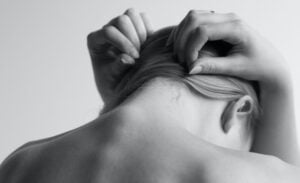Drug and Alcohol Rehab in Switzerland
Despite progressive reforms to drug laws in the 1990s, addiction continues to impact communities across Switzerland.
Thilo Beck, chief of psychiatry at Arud Centers for Addiction Medicine, states that while heroin use remains low, other substance use disorders are on the rise.
He reveals, “Cocaine use, for example, has been very high for years. We’ve seen a shift towards illegal drugs that stimulate consumers”.
Similar to the rest of Europe, alcohol consumption has remained problematic for Swiss residents.
Worryingly, Addiction Monitoring in Switzerland discovered in 2013 that 3% of the population were alcoholics– equating to around 250,000 people.
Adding to these tragic statistics, Gabriela Scherer of the Federal Office of Public Health estimates that there are about 1,600 alcohol-related deaths each year– adding that;
“Alcohol consumption in Switzerland is still high , and we still have a lot of health and social problems that are caused by alcohol abuse”.
You can read more about the disease of addiction here.
Fortunately, Switzerland is home to many leading rehab centres dedicated to producing an outstanding level of research-led care.
Here at Rehab Recovery, we’ve designed a personalised referral system that puts you in touch with a drug & alcohol rehab in Switzerland to suit your needs.
Discover how a drug and alcohol rehab in Switzerland can help you beat addiction once and for all by calling us today on +44 330 333 6197
The rehab admissions process in Switzerland

Professionally supported drug and alcohol rehab is one of the best ways to recover from addiction.
Enrolling in rehab is a life-changing decision and, as such, can feel overwhelming. That’s why here at Rehab Recovery, our expert team has curated a stress-free admissions process that’s easy to navigate.
We’ve simplified the process of choosing an addiction treatment provider: ensuring all our partners throughout Switzerland are certified to deliver outstanding care.
Once you or a loved one have reached out, the Rehab Recovery team will arrange a swift telephone assessment.
This initial stage aims to gather the information needed to find specialised clinics in your area.
Performed by a non-judgemental member of our staff, the call typically lasts between 10-15 minutes, and any information you give will be strictly confidential.
One of our consultant psychiatrists will conduct a short health assessment- asking you about any mental or physical symptoms, the nature of your addiction, and your substance use history.
They’ll then be able to suggest the types of addiction treatment and rehab clinics befitting your unique situation and needs.
Following the pre-intake screening, one of our compassionate team will create a safe, virtual space in which to discuss your preferences for rehab treatment.
It might be that you’d prefer to travel further afield in Switzerland, choose a smaller clinic, or try out a particular treatment.
Based on your answers, our team will work rapidly to produce a shortlist of affordable clinics in your area.
Once you’ve selected a drug & alcohol rehab in Switzerland, the final steps involve travel arrangements and financial options to align with your circumstances.
Here at Rehab Recovery, we believe in the accessibility of addiction treatment services and will organise a payment plan to suit you and your loved ones.
Begin the admissions process at a drug and alcohol rehab clinic in Switzerland by calling us today on +44 330 333 6197
Physical vs psychological addictions

Addiction is not considered a ‘choice’ or ‘moral failing’ on behalf of the addiction sufferer – so the focus of rehab is always on returning agency to the patient.
While Substance Use Disorder (SUD) can exhibit a variety of symptoms in those suffering, the distinction offered by experts is physical vs psychological.
Understanding the difference between these types is also crucial to understanding how they interact. Individuals with a physical addiction will consume drugs or alcohol to the extent that their bodies can’t function without it.
Tragically, attempts made to abstain from said substance often result in painful bodily withdrawal.
Warning signs of this dangerous state include vomiting, shaking, disorientation, blackouts, delirium tremens and even seizures.
Alcohol, opiates, and prescription drugs such as codeine, are known for their ability to induce physical addictions and lead to dangerous states of increased tolerance.
Over time, the body acclimatises to the effects of a substance and will stop reacting in ways it once did- leading people to chase the same high by consuming more.
Conversely, psychological addictions are connected to the mind and emotions. Driven by a mental attachment to said substance, those with a psychological dependency suffer from intense cravings.
Any attempts to quit are met with volatile emotions, extreme anxiety, and other mental withdrawal symptoms.
While less common, someone can experience a purely mental addiction.
For example, cannabis is associated more with psychological compulsions, and it’s rare for individuals to suffer physical withdrawal while detoxing.
To learn more about the nature of addiction and how a rehab centre in Switzerland can help you beat it, call us today on +44 330 333 6197
The alcohol detox process

For those battling Alcohol Use Disorder, treatment in the form of a supervised detox is recommended to optimise long-term healing.
While some of the narratives surrounding alcohol detox label it as challenging, our treatment providers ensure the safety and comfort of each patient.
Shortly after checking in to your chosen drug & alcohol rehab in Switzerland, you’ll undergo a medical exam and begin shaping your personalised alcohol detox plan.
This plan determines which medications you’ll receive and the estimated length of detoxification. Each case is unique, so patients can expect to complete detox anywhere between 7-14 days.
Throughout this time, you’ll be monitored by a team of caring staff, with access to emotional therapy, nutritious meals, entertainment facilities, and medication if needed.
Due to the likelihood of physical and psychological alcohol withdrawal in the early stages, patients are urged to consider a medicated detox to maximise comfort.
Often, prescription drugs such as Benzodiazepines or Librium are used to treat psychological stress, relieving alcohol withdrawal symptoms like anxiety and panic, and reducing the risk of seizures.
Additionally, the prescription drug Naltrexone may be prescribed to help ease cravings.
Also used to treat heroin addictions, Naltrexone blocks feelings of euphoria released by substance use- breaking the link between drinking alcohol and pleasure and preventing relapse.
Make sure that your alcohol detox is safe and effective – get the help of a rehab clinic in Switzerland by calling us today on +44 330 333 6197
Drug detox in Switzerland

It is recommended that those struggling begin recovery with an inpatient detox, owing to the severity of drug addictions.
At a drug & alcohol rehab in Switzerland, you’ll have 24/7 access to a team of caring professionals alongside medical and holistic support.
Especially in the case of opiate use disorders, it’s vital to treat the physical dependency before moving on to psychotherapy.
Depending on the individual and the nature of their addiction, this initial stage can last between 5-14 days.
While taking care to avoid the “cold-turkey” approach, the drugs are flushed out of the body by a gradual reduction process: increasing the comfort and safety of each patient.
In the first 48 hours of opiate detox, physical withdrawal symptoms are likely to peak as the body adjusts to lower levels of a substance.
During this time, you’ll be closely monitored and offered medication that’s customised to your unique needs.
For heroin use disorder, patients are offered substitution therapy in the form of replacement opioids.
Typically, buprenorphine or methadone are administered to reduce cravings and ease discomfort.
Conversely, those withdrawing from stimulants such as cocaine may experience a peak in withdrawal symptoms around the 7-day mark.
Ranging from insomnia to panic attacks and depression, a medication used to treat mental health illnesses has successfully fought cocaine withdrawal.
Modafinil encourages dopamine production and reduces restlessness, while Baclofen reduces cravings by increasing the production of GABA in the brain’s neurotransmitters.
Beat your drug addiction once and for all with the help of a rehab centre in Switzerland by calling us on +44 330 333 6197
Alcohol rehab in Switzerland

By remaining in your chosen rehab clinic after detox, you’ll have the opportunity to uncover and treat the root cause of your alcohol use disorder.
With a range of therapy to work through, patients at a drug & alcohol rehab in Switzerland usually opt to spend a minimum of 30 days cementing their recovery.
During your stay, you’ll learn core skills and coping strategies for preventing future relapse through a variety of mediums.
As always, each patient’s treatment is carefully modified to suit their personality, medical history, and unique preferences for care.
In rehab for alcoholism, each individual is assigned a therapist specialising in alcohol use disorder.
On a regular basis, they’ll carry out one-to-one psychotherapy sessions designed to treat the patient as a whole and address the root cause of their dependency.
Cognitive Behavioral Therapy (CBT) is often used to achieve these goals and is a popular therapy among patients and counsellors alike.
It treats the more ingrained psychological addiction by rewiring the thought patterns leading to alcohol consumption.
Over a series of workshops, you’ll learn to manage behavioural compulsions and break the cycle between certain thoughts, emotions, and actions.
Another prominent aspect of inpatient treatment is group therapy.
Led by a licensed counsellor, this community-centric approach encourages participants to engage with each other and form a support network.
By working together and sharing valuable coping skills, patients stand a better chance of retaining an alcohol-free life post-rehab.
Additionally, many clinics encourage on-site Family Addiction Counselling. In these sessions, your loved ones will have the opportunity to better understand your alcohol use disorder (AUD) and how it might change your behaviour.
Re-building these relationships is often vital to sustaining sobriety and can help those suffering directly from AUD in their long-term recovery.
Get the support you need to beat alcohol addiction by calling our experts on +44 330 333 6197
Cocaine rehab in Switzerland

Known to cause acute psychological addictions, those with cocaine use disorder often thrive in specialised rehabilitation centres.
By choosing a drug & alcohol rehab in Switzerland, you’ll have access to bespoke psychotherapy, medical support, and a safe environment free from triggering situations.
As there’s no one-size-fits-all for treating cocaine addiction or crack cocaine addiction, the rehabilitation process can last anywhere from a few weeks to a few months- depending on the individual and their needs.
In rehab for cocaine, successful treatment often consists of combining both pharmacological and psychological support.
You won’t need to undergo a cocaine detox – instead, you’ll begin moving through your personalised drug addiction treatment plan, designed to tackle the root cause of your cocaine dependency.
In one-to-one CBT sessions with your assigned therapist, you’ll build the skills needed for relapse prevention and greater self-understanding.
Techniques include the ability to recognise situations that trigger cocaine-use and learning how to change these behavioural patterns.
Oftentimes, CBT is used alongside medication to treat the symptoms of pre-existing mental health illnesses alongside addiction – a situation known as dual diagnosis.
Both associated with cocaine use, anxiety and panic disorders are treated using beta-blockers or Benzodiazepines.
These medications are known for easing restlessness and regulating dopamine production to help to heal the mind following cocaine-induced changes in the brain.
Overcome your cocaine addiction at a drug rehab in Switzerland – call our team today on +44 330 333 6197
Heroin rehab in Switzerland

Opioid use disorder is a chronic relapsing condition that affects over 16 million adults worldwide– causing various states of impairment.
If you’re struggling with this debilitating illness, it’s therefore vital to seek the help of an inpatient drug & alcohol rehab in Switzerland.
By completing a 30, 90, or even 120-day residency, patients emerge from rehab with the coping mechanisms to avoid opioid relapse.
Once you’ve completed a medically supervised heroin detox, a consultant psychiatrist will guide you through the contents of your bespoke care program.
Aided by a supportive network of staff, you’ll begin a rigorous routine of psychotherapy set within modern facilities.
Usually, behavioural intervention focusing on emotional welfare proves successful in the early stages of opioid addiction recovery.
Dialectical Behavioural Therapy (DBT) addresses the underlying cause behind heroin use- past trauma, life stress, or a mental health disorder.
With continual sessions, patients can build the skills to manage negative emotions and change them into positive ones.
Alongside psychotherapy, rehab centres utilise contingency management to increase treatment retention and motivate ongoing abstinence.
Using an incentive-based system where patients are rewarded for reaching milestones in treatment, providing clean urine samples, and similar achievements.
Common examples include vouchers that can be exchanged for items conducive to healthy living. These can be specific meals, yoga classes, or gym access.
Overcome your heroin addiction at a drug rehab in Switzerland – call our team today on +44 330 333 6197
Cannabis rehab in Switzerland

Entering a drug and alcohol rehab in Switzerland when you’re addicted to cannabis offers the best start to recovery. Therapists work with you to understand how the addictive behaviours came about.
Together you work out how cannabis is affecting your mental health. You’ll consider symptoms linked to depression, anxiety, and psychosis which are all linked to cannabis use.
There will be time to consider how it affects your life goals and motivation.
Together with the rehab staff, you’ll start to create goals that you want to achieve in life. You’ll have therapies that support you to make positive decisions around drug use.
Cannabis detox is not necessary, as cannabis is not physically addictive.
Overcome your cannabis addiction at a drug rehab in Switzerland – call our team today on +44 330 333 6197
Therapy styles at rehab in Switzerland

Over the years, substance use disorder has seen an increase in scientific attention: leading to an ever-increasing variety of therapy-based treatments.
While completing your stay at a residential rehab at a rehab clinic in Switzerland, you’ll encounter the types of therapy most suited to your unique needs and addiction.
Most of these treatments are available as both individual therapy and group therapy.
Motivational Interviewing (MI)
Well known for resolving hesitancy in those receiving treatment, MI sessions increase an individual’s motivation for change.
In these collaborative sessions, a trained therapist encourages their patient to identify and resolve the mental obstacles obstructing recovery.
MI often compliments behavioural therapies such as CBT and DBT by increasing the individual’s willingness to participate.
Cognitive Behavioural Therapy (CBT)
A well-known name in the world of psychotherapy, CBT implements positive cognitive change by rewiring negative thought pathways.
Substance use disorder is capable of changing brain chemistry, which is thought to cause destructive behaviour patterns.
Therefore, CBT is useful in encouraging patients to evaluate the way they think.
During CBT sessions, patients learn how their thoughts, feelings, and actions intertwine- and how these links can be changed over time.
Dialectical Behavioural Therapy (DBT)
Similar to CBT, DBT is a behavioural intervention aiming to manage cognitive patterns.
Adapted for those who feel emotions deeply, sessions are particularly useful for healing trauma and the traumatic life events that can inform substance use.
Holistic Therapy (HT)
HT is an alternative therapy characterised by the treatment of the individual as a whole: taking into account their mind, body, and spirit.
By focusing on overall wellness, patients are encouraged to form personal goals for their pursuit of a healthy life post-rehab. As such, HT workshops at a drug & alcohol rehab in Switzerland focus on many topics.
Common themes include yoga, art therapy, music therapy, nutritional counselling, meditation and mindfulness.
Experience any and all of these effective therapies at a rehab centre in Switzerland by calling us today on +44 330 333 6197
Post-rehab support in Switzerland

Here at Rehab Recovery, we’re dedicated to helping you assimilate back into the community after being discharged from your leading rehab clinic.
We provide our clients with a comprehensive 12-month aftercare package at no additional cost.
Experts have agreed that abstinence is far more effective than harm reduction or moderation management, so a significant portion of your aftercare will be concerned with relapse prevention.
You’ll have the opportunity to continue in outpatient treatment at your local drug & alcohol rehab in Switzerland and reap the benefits of regular group therapy.
Fellowship groups such as Alcoholics Anonymous (AA) and Narcotics Anonymous (NA) are therapeutic communities that utilise their form of12-step recovery.
Each step focuses on cultivating a particular trait thought to enhance recovery: such as acceptance, honesty, willingness, and forgiveness.
Over weeks, months, or even years- members of these groups work on healing collectively, thereby decreasing the threat of isolation.
Additionally, telephone-based addiction counselling is offered regularly: allowing you to discuss your recovery virtually and receive advice from a licensed therapist.
Your assigned addiction specialist will provide a safe space in which you can both voice your concerns and share your achievements.
Match your stay at a rehab in Switzerland with an equally effective aftercare plan by calling us today on +44 330 333 6197
Contacting Rehab Recovery
For more information on detox and rehab options in Switzerland, contact Rehab Recovery today on +44 330 333 6197.
When you contact us, we shall outline the wide variety of addiction treatment services that are available to you in Switzerland.
This includes both private rehab and statutory addiction treatments in a wide selection of rehab clinics
We also offer access to rehab centres across a variety of locations across Switzerland and the rest of the world.


